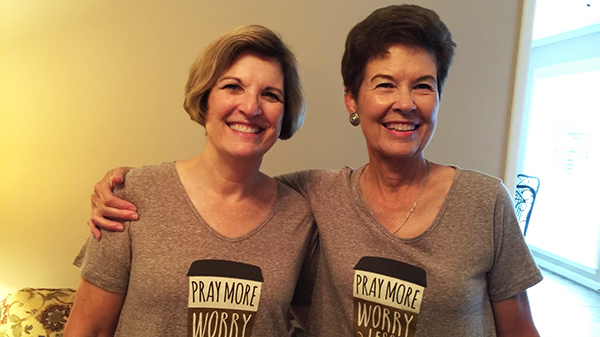Garland Brock said he has seen the scenario often as grief-stricken families plan funerals while struggling with the loss of a loved one.
For some, their emotional makeup is strong enough that they can work through their loss. Brock, manager of Ridout’s Trussville Chapel in Trussville, said others — who may not have as strong a sense of organization — find their skills taxed even more in their loss.
But Brock and other funeral home directors said preplanning funeral arrangements is the wisest choice for both individuals and surviving families members.
“It’s one less thing for them to consider,” said Kenny Hart, operations manager of Radney Funeral Homes in Mobile.
Funeral home directors said planning arrangements before death eliminates tough decisions at a stressful time and may prove economical. The practice is embraced not only by funeral homes but also business advocates.
“They (the individual) pick out the cemetery lot, they pick out the funeral home that they want to use, the markers — whatever the case may be,” said Donald Boomershine, president of the Better Business Bureau for Central Alabama. “And what they’ll do, is they’ll pay for this over a period of time so when the time of need arises, those decisions are already made.”
Hart said preplanning also allows the person who will benefit from the services to make his or her own choices. “The person has already picked out the services and merchandise they want,” he said.
Tracy Bonner of Chapel Hill Funeral Home and Crematory in Anniston said pre-planning also saves money in that it prevents surviving family members from overspending on more elaborate caskets or monuments.
Bonner said families often put off pre-planning because “no one wants to talk about it, but it’s something that’s going to happen.” He said such planning brings an individual to face reality that they are growing older.
“We look at preplanning as a benefit to families,” said John Deacy, vice president of Ridout’s Brown Service in Birmingham. “It allows them to make personal decisions in the comfort of their home or even at our funeral home, without the burden of the grief of the deceased.”
Deacy said conversations where pre-planning is involved are usually “free-flowing” and allow families to make logical decisions and take their time. “From that aspect, we like the concept of pre planning,” Deacy said.
“People in this day and time are much more comfortable making funeral arrangements when they’re in such an emotional state that they can make correct decisions,” Brock said.
Brock said he has seen many families on “the worst day of their life” able to make final arrangements in a timely period because they had preplanned years earlier.
“Rather than being in here for an hour and a half on the worst day of their life, they’re here for 20 minutes,” he pointed out.
Brock said pre planning prevents families from answering questions about recently deceased loved ones “that can bring emotional outbursts.”
Another advantage in pre-planning is that families can save thousands by paying in advance for services they may not use for years or decades. While the costs will increase with inflation, he said pre-planning allows them to lock-in at current prices.
Hart adds preplanning assures families will not be burdened in situations where the deceased’s life insurance does not cover funeral and burial expenses.
Boomershine warns, though, that consumers should read contracts for information on adjustments for inflation. He said funeral costs — like most things — have increased in the past few years and consumers need to make sure what they are paying will be sufficient to provide the type funeral that a person anticipates.
“You need to read the fine print,” Boomershine said. “You need to understand what happens if this company goes out of business. You need to know these details.”
Boomershine said families should also make sure contracts address the issue of perpetual care to assure gravesites will be properly cared for.
Things to look for in a reputable funeral home:
- Be wary of funeral home directors who are pushy; do not be pressured into paying for a service or extravagance that is not required by law or that you may not want.
- The funeral home representative should do more listening than talking.
- Know the funeral home’s background and how long they have been in business.
- Check with the Better Business Bureau to see if there are complaints against the funeral home, along with relatives and friends who have done business with them.
- The funeral home should provide a general price list for services, along with a price list for
caskets and vaults. - Look for diplomas and licenses. Ask if the funeral director is a graduate of a school or program accredited by the American Board of Funeral Service Foundation; some licensed funeral directors are not.
- Look for sales emphasis on service, not merchandise.
- Look for a variety in service options.
- Use common sense; if something sounds too good to be true, it probably is.
- Look for the availability of warranty information on caskets and outer burial containers.
Sources: William Counce, director of funeral services, Jefferson State Community College; Donald Boomershine, president of the Central Alabama Better Business Bureau.




Share with others: